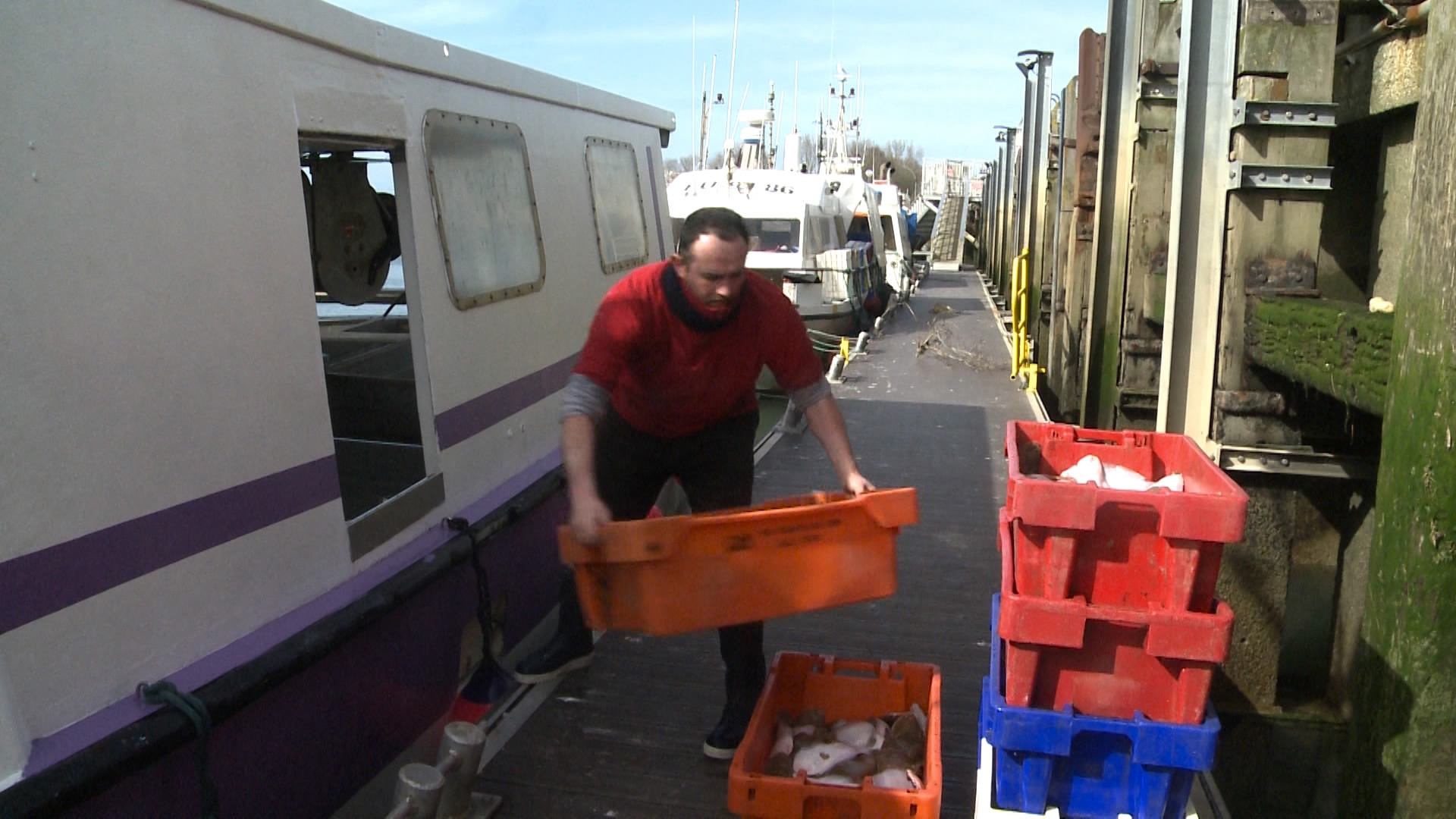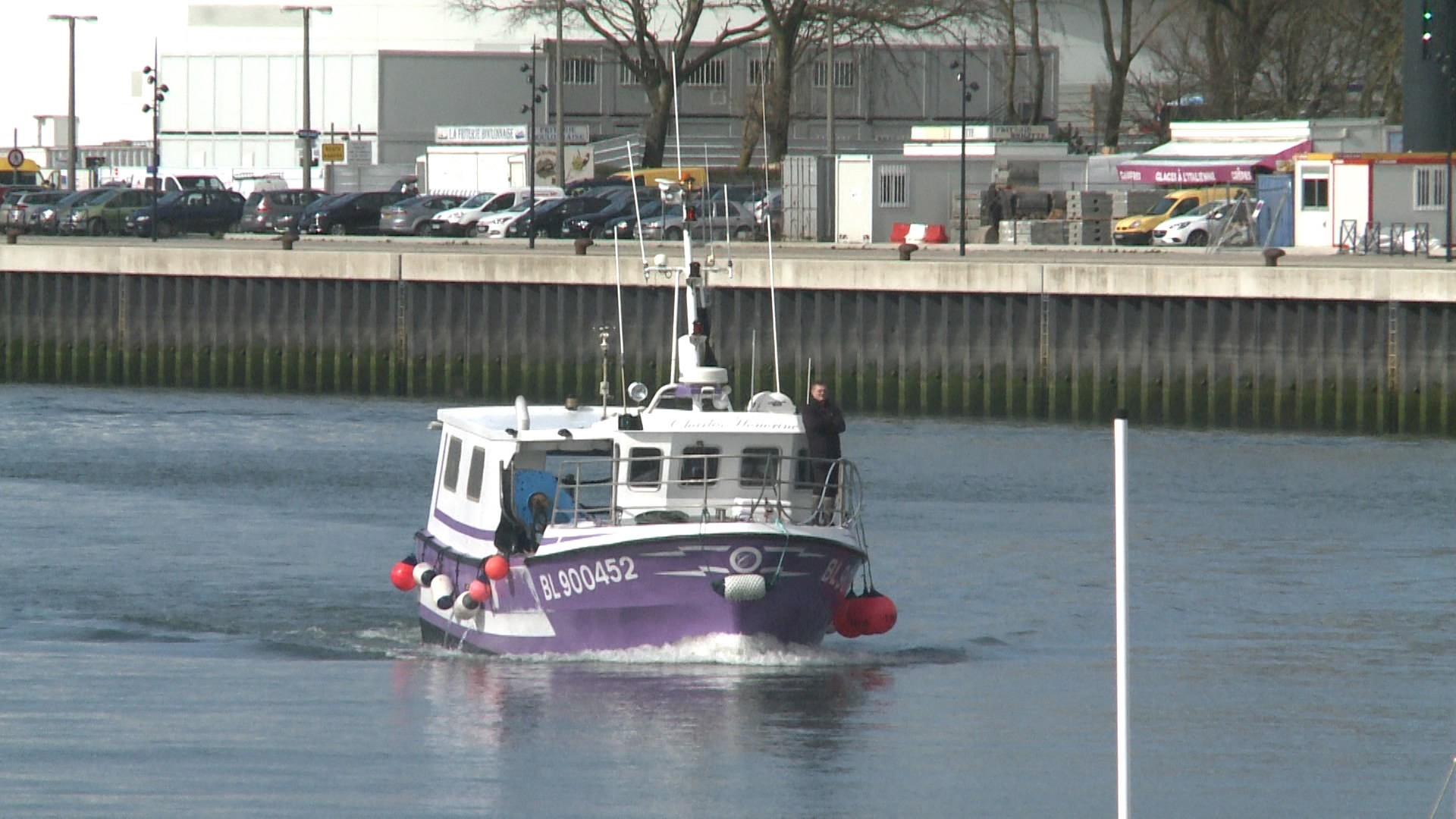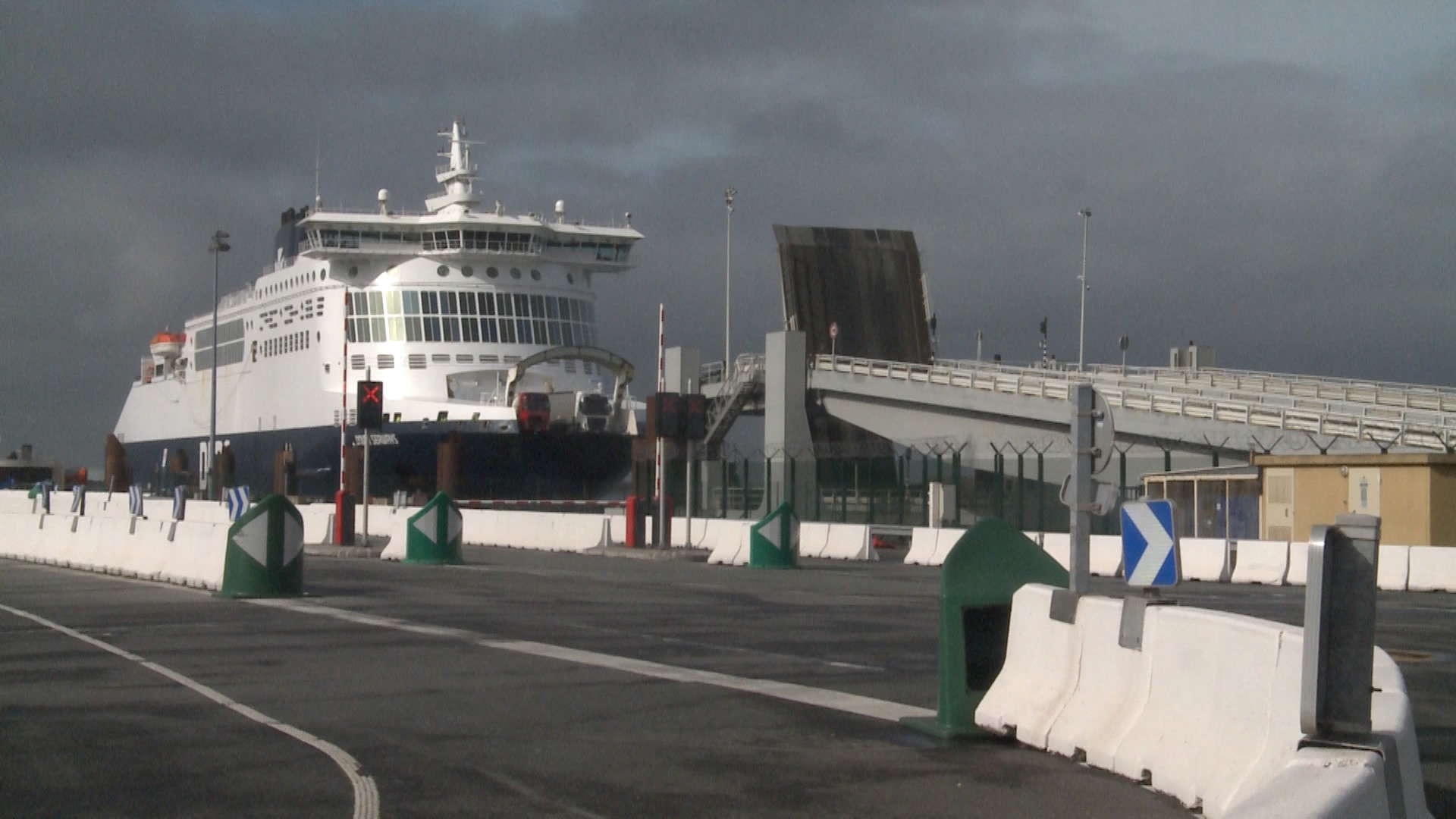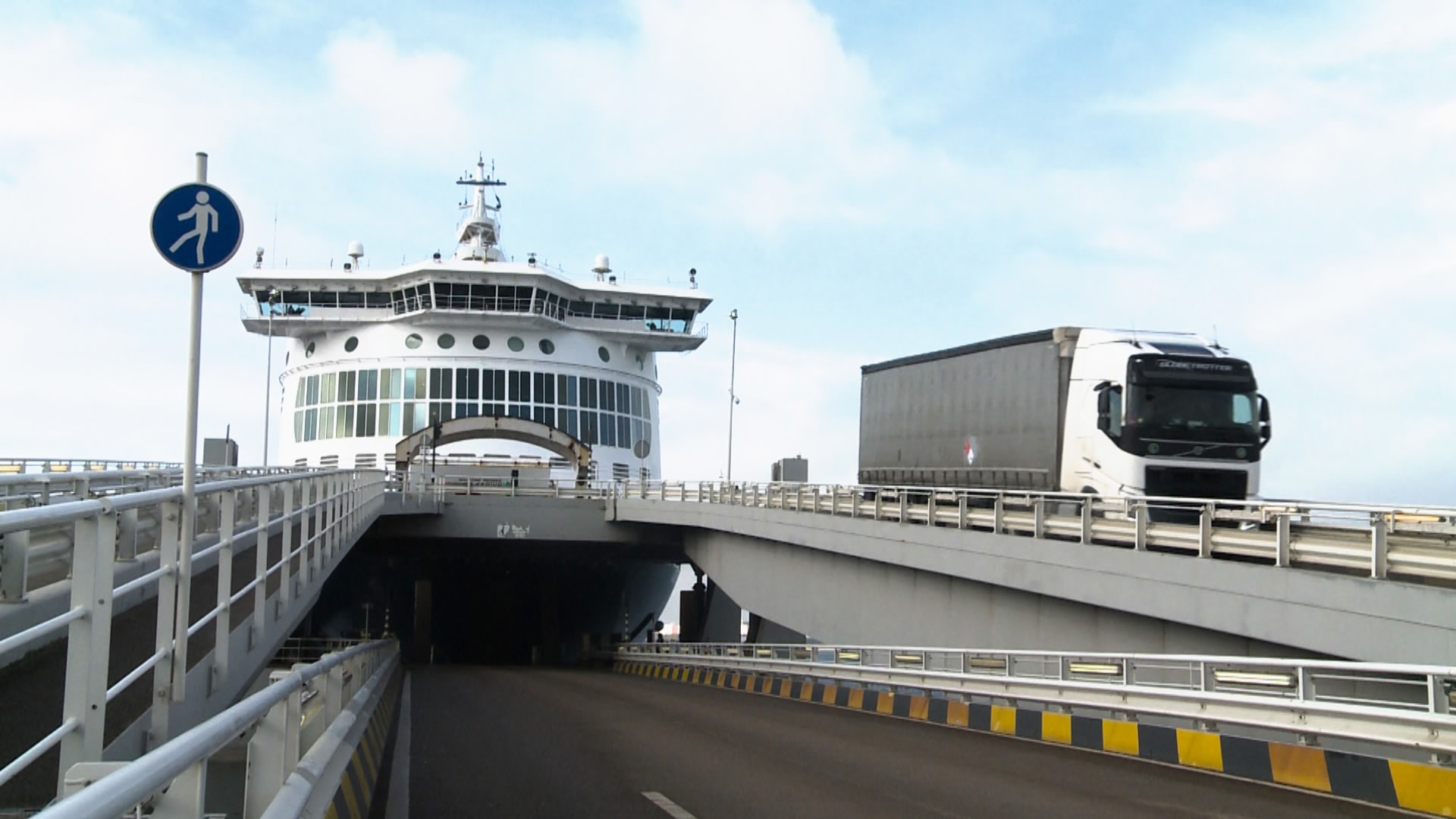
Business
16:00, 20-Mar-2018
French fishermen fear losing catch to Brexit
By Elena Casas

In the fishing port of Boulogne-sur-Mer in northern France, crates of plaice, cod and sea bass stack up on the quayside. This is one of France’s biggest fishing ports - but 70 to 80 percent of what’s landed here is caught in British waters.
“All the crews sailing from here would lose their jobs if we were blocked from fishing in British seas,” Stephane Pinto, the vice president of the Pas-de-Calais regional fishing committee, explained to CGTN. “I don’t believe the British fishermen would catch all the fish that we do, either - there’s less demand for flat fish species in Britain.”

Boulogne-sur-Mer fishing boat /CGTN Photo
Boulogne-sur-Mer fishing boat /CGTN Photo
British fishermen disagree. The overwhelming majority of them voted for Brexit, because they feel current EU fishing quotas overly restrict what they are allowed to catch.
The current quota system was introduced in 1983 and based on average catches in the late 1970s; its opponents say it has failed to evolve with the times. Supporters of the system say it’s vital for maintaining fish stocks, and any Brexit deal that allowed the UK to exceed its current quotas would risk ecological disaster.
Everyone in the fishing sector is well aware this one of very few sectors of the economy where Britain has the upper hand, because European boats catch far more fish in UK waters than the other way around. That means fishermen fear they’ll be used as leverage to gain an advantage in other sectors.
On Monday, Britain agreed to stick to the current fishing quotas during a transition period that is set to last until December 2020, but after that the UK will be allowed to decide who can fish in its waters. Fishermen here in France say that any attempt to restrict what they can catch in British seas will be catastrophic for the economy here.

A ferry arrives at Dunkirk Port. /CGTN Photo
A ferry arrives at Dunkirk Port. /CGTN Photo
This coastal area was hard hit by deindustrialization and already has high unemployment. The port of Dunkirk hopes to create jobs with a 900 million dollar upgrade to its cargo port, which already handles over 100 lorries a day.
But much of that business is based on fast turnaround times, with European companies selling fresh produce to the British market reliant on being able to get their wares from their own warehouses to supermarket shelves in Britain in a matter of hours.
Right now, it takes the average lorry 53 seconds to pass the security checks that exist here, but the port authorities estimate a delay of two minutes per lorry would cause a 27-kilometer-long traffic jam.
The problem is that the British government has announced it intends to leave the customs union, which means that thorough customs checks would have to be carried out at all the Channel ports. Even a wide ranging trade deal, such as that existing between the US and Canada, would mean checks on all lorries - to make sure they are really carrying the produce they say they are.

A lorry leaves the ferry. /CGTN Photo
A lorry leaves the ferry. /CGTN Photo
Kasper Moos, the chief operating officer of DFDS Ferries, explained to CGTN that wouldn’t just affect the port - it could also quickly have an impact on food security in Britain.
“The current system is based on fresh produce being able to get from a lorry here to Tesco shelves in Britain on the same day,” he said. “With no agreement on customs checks, people will find supermarket shelves in Britain bare the day after Brexit.”
Moos says that if a transitional agreement is signed off in Brussels this week, his company should have just enough time to implement technological checks that will stop traffic here in the port from grinding to a halt.
But the longer term future of the Channel ports will depend on the future trading relationship between Britain and the EU - and talks on that have yet to get into gear at all.

SITEMAP
Copyright © 2018 CGTN. Beijing ICP prepared NO.16065310-3
Copyright © 2018 CGTN. Beijing ICP prepared NO.16065310-3